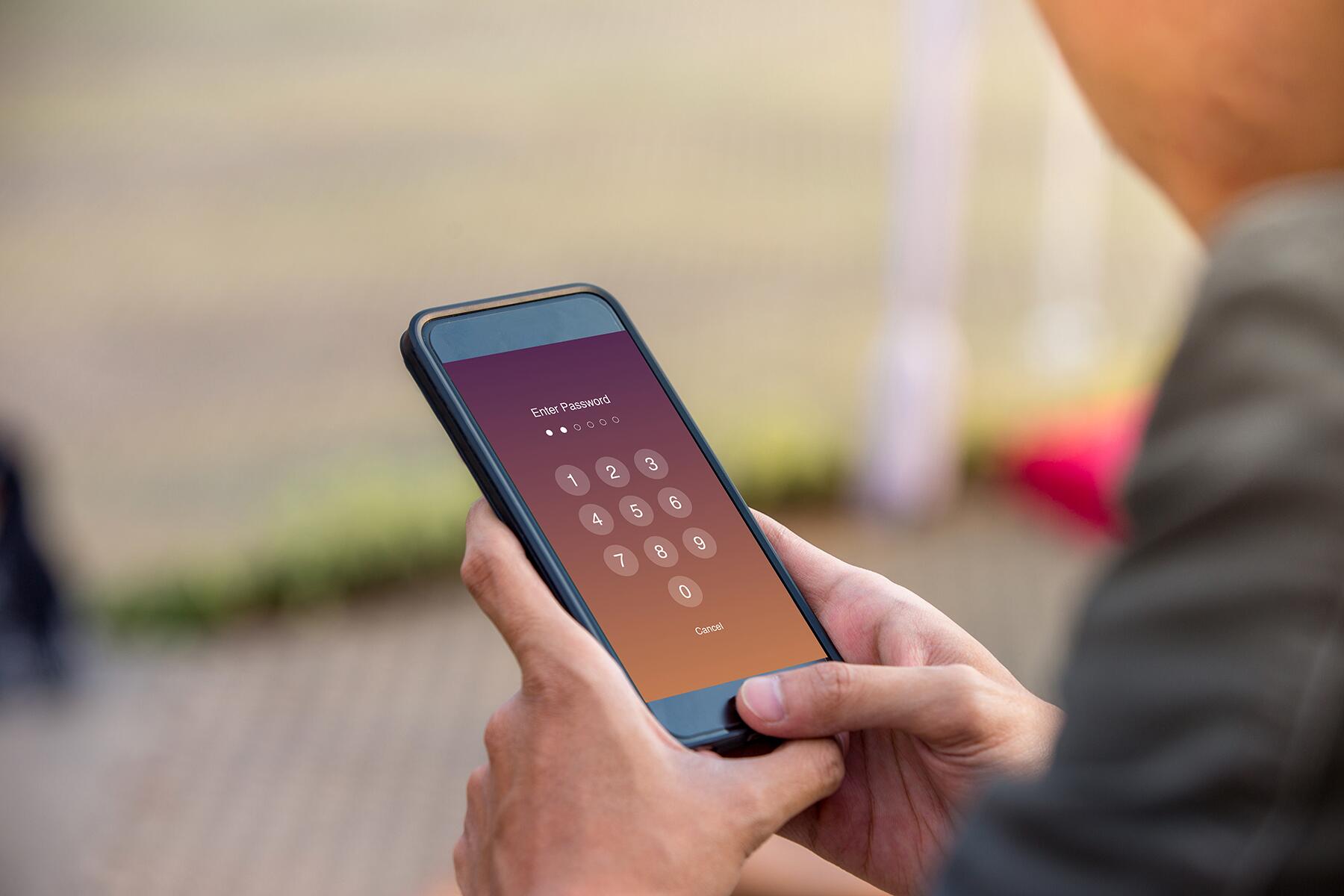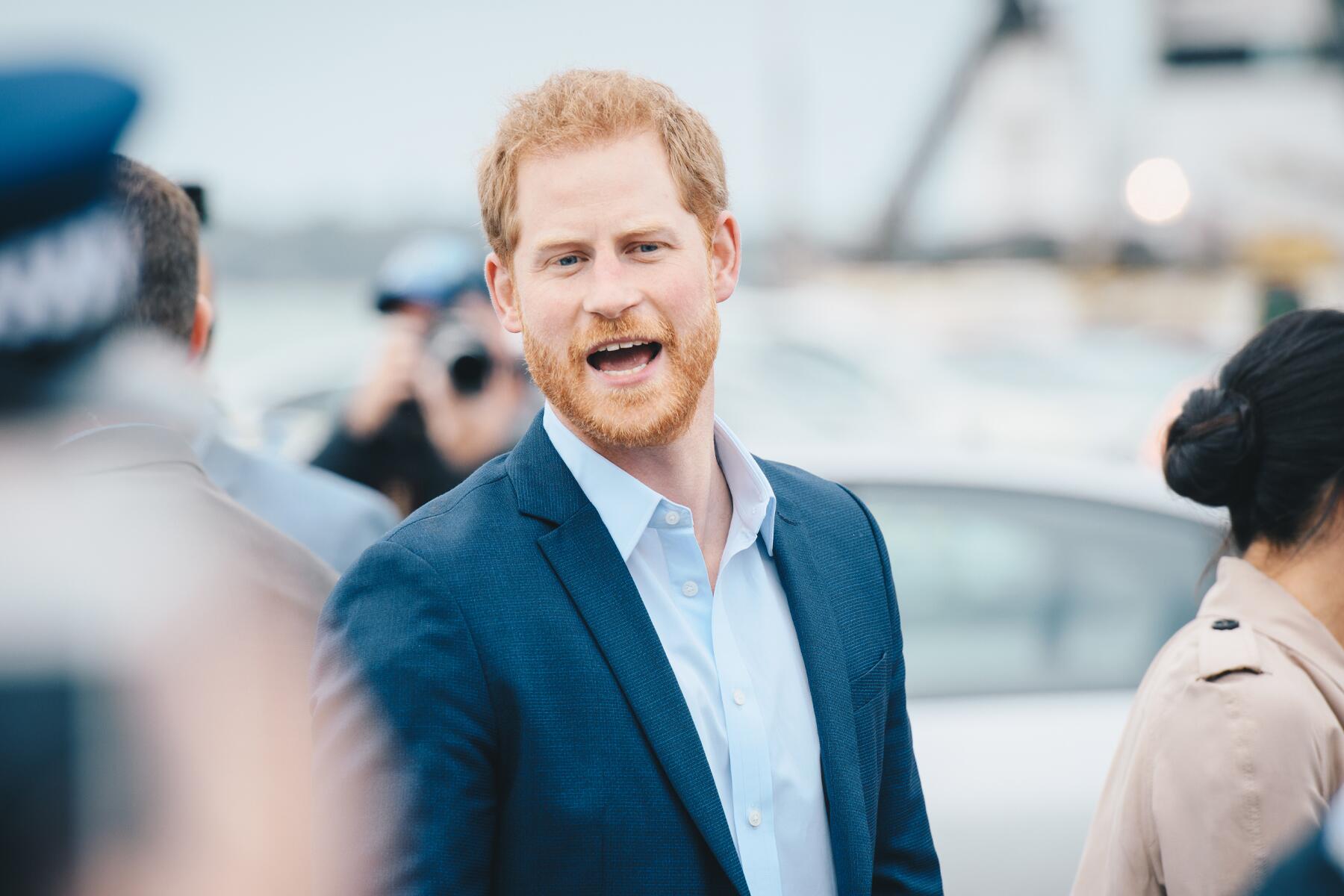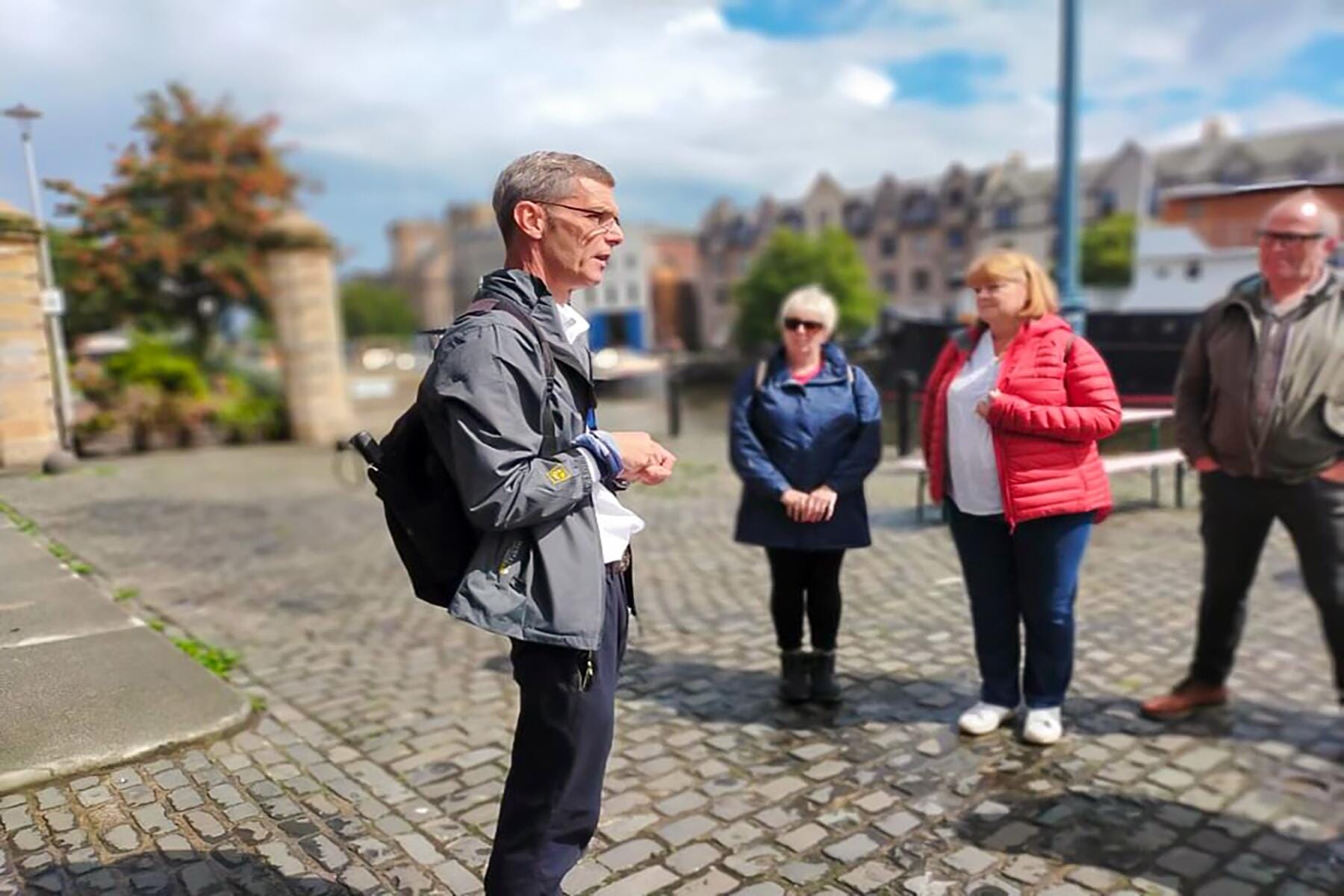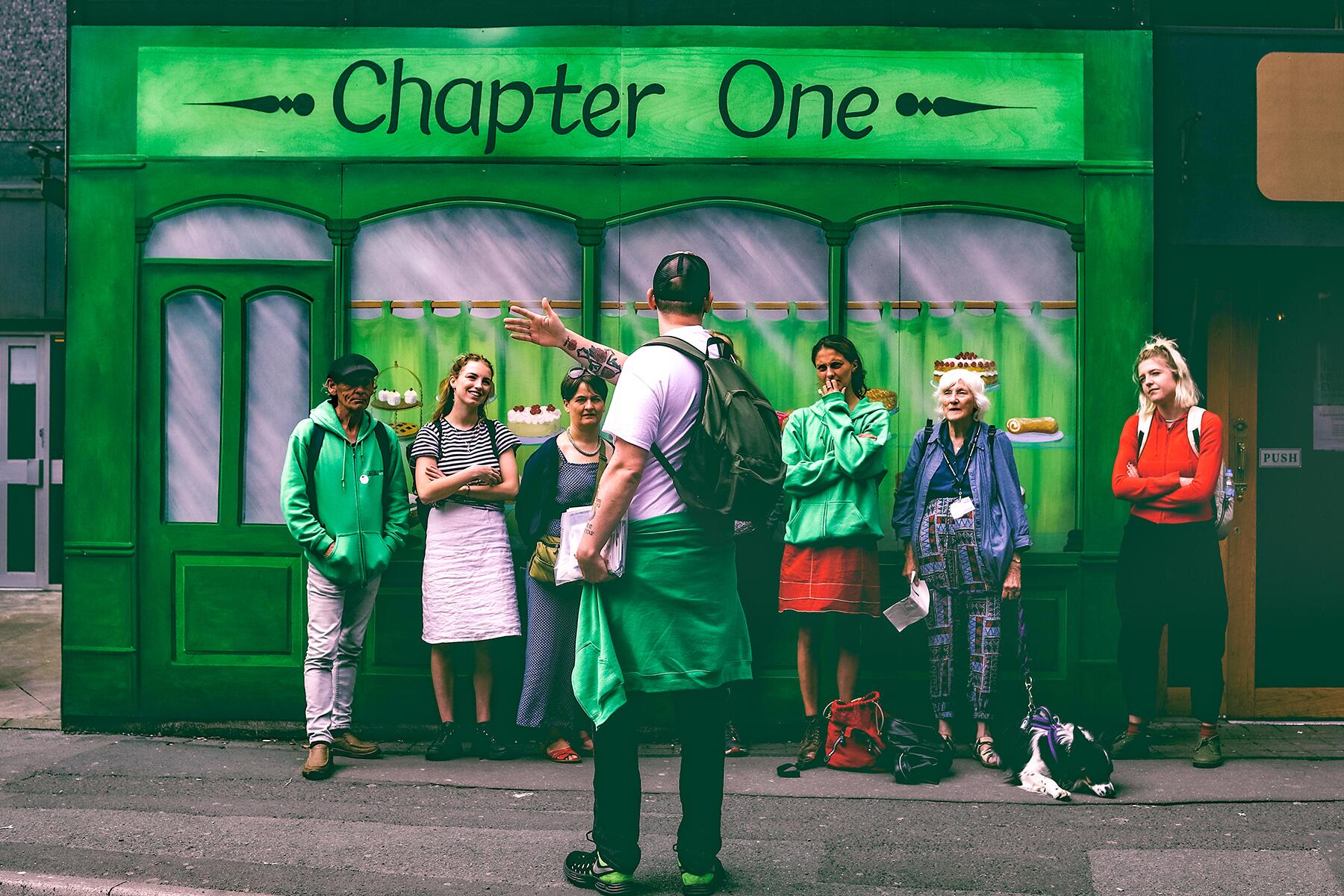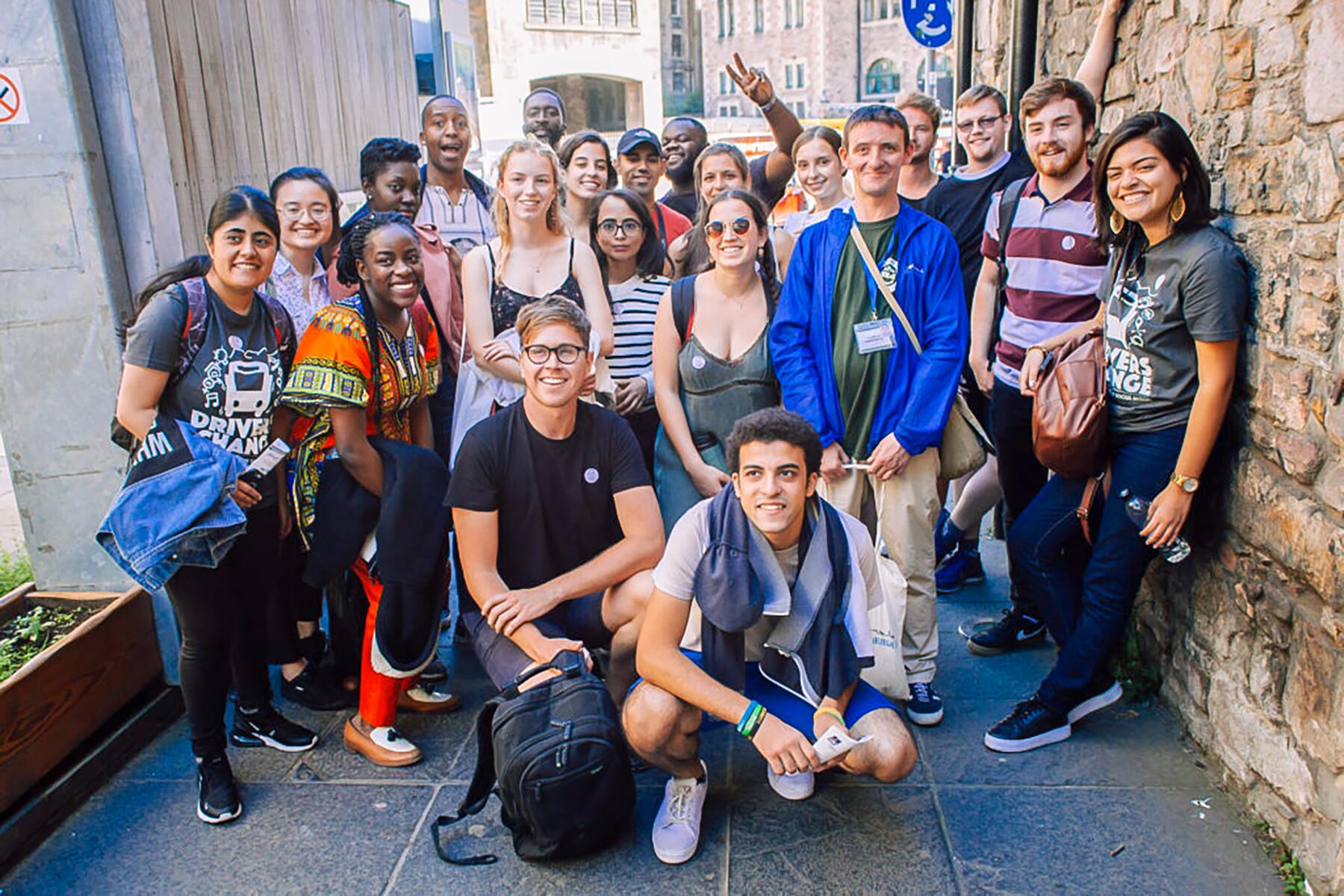How an Edinburgh-based enterprise offers a fresh start for unhoused UK residents.
“See that?” Paul gestures with a nod towards a pair of men at the exit to a 1960s-built shopping precinct. There are few tour leaders who would draw their clients’ attention to public displays of drug use, but Paul Stewart is no ordinary guide; he was formerly unhoused and lived on these streets. As we walk, he reveals not only the well-documented, traditional history of Edinburgh but also a fuller portrait of its people and communities, as well as its challenges and the organizations working to combat these.
Paul’s employer, Invisible Cities, is one such project. Its tour guides across Scotland and northern England have all experienced homelessness and now, after training, are building the skills and confidence that should help them better secure long-term employment, by sharing their perspective, expertise, and unique insights into their communities.
Our particular tour, Alternative Leith, concentrates on Edinburgh’s port. A statue of Queen Victoria prompts Paul to outline her involvement in the opium trade, and later we see the distinctive curved apartment block that was home to heroin addict Sick Boy in Trainspotting (Paul leads a separate dedicated tour for fans). Amid more typical highlights, like a site linked to the origins of golf, we visit a community vegetable garden and hear about Leith Conversation Café, a project to combat immigrant loneliness.
Recommended Fodor’s Video

“I own that piece of land,” says Paul, pointing to a section of quay just a few yards from a Michelin-starred restaurant. It’s a prime piece of real estate, but is also just a few feet square. This is where Mary Queen of Scots stepped ashore in 1561 on her return from exile in France, and Paul has convinced the council to reserve him this patch while he fundraises for a statue.
Now in its fifth year, Invisible Cities was founded by Zakia Moulaoui Guery after her experience working for street soccer charity The Homeless World Cup. “That gave me the opportunity to talk to people having a rough time. They’d tell me ‘as a homeless person you feel a bit stigmatized, feel that people don’t understand how this happens,’” Zakia explains. “Visiting projects in Romania and Lebanon, I got to hear stories of homelessness as it was my job, but if it wasn’t, I wouldn’t have. I thought ‘How could you make that happen for people traveling around, how could people have access to these stories?’” A tour guide in Greece gave Zakia her final inspiration.
She launched Invisible Cities in Edinburgh in 2016. It has since expanded to Glasgow, Manchester, and York and is poised to launch in Cardiff, Wales, with longer-term plans for mainland Europe.
Potential guides are referred to the project by charities. “They’ll say, ‘We’ve got John, he’s got great chat,’” says Zakia, though the social enterprise takes on plenty of people without a natural gift of gab. The focus is on providing them skills that will help them towards stable employment beyond Invisible Cities.
“Some just want to build their confidence then find full-time work, others want to go back to college, others, like Paul, really want to be a tour guide,” explains Zakia. “For women who have experienced domestic violence, lack of confidence is a massive issue for them to return to employment.”
Securing housing is Invisible Cities’ first priority for trainee guides who are still rough sleeping. They are also taught public speaking and creative writing skills, then professional guides and history students help them build and practice their tours.
Zakia says, “Some people have a very clear idea of what they want to focus on. ‘I want to promote women… I want to focus on crime…’ Others have a character or building in mind as a starting point, others have no ideas. Most of the time we want it to be something they’re passionate about.”
Tour themes in Edinburgh include notable women of the city, and the evolution of the historic Royal Mile. Zakia leads her own tour highlighting local social enterprises. In Manchester, you might join Andy on “Ales and Alleyways” for the stories behind local pubs, and in York, you can take a “Health and Wealth” tour led by Miles, a former banker who struggled with alcoholism and homelessness.
Each tour starts with some background on Invisible Cities but the sharing of personal stories of homelessness varies from guide to guide.
“It’s very important because of who we are and what we do but we’re not putting words into people’s mouths, they may not want to talk about it,” Zakia says. “Some people don’t want to advertise ‘this is who I am,’” she explains, “but if homelessness is something that happened to you, you can raise respect of that. It’s all about owning your story.”
Paul’s tour touches on his personal journey. He happily points out a church where the priest once gave him a bed for the night and as we pause to admire the 19th-century building occupied by Leith Police Station he reveals he spent time on the wrong side of its doors during his difficult youth. When officers recently suggested he lead his tour inside he quipped,
“I hope your cells have improved!”
Invisible Cities hosted 4,130 people on 597 tours in 2019. The pandemic has been a huge blow to its work.
“We lost 100% of our income. We used to work with cruise lines and coach companies and we lost all the contracts within a week,” sighs Zakia. “A lot of those companies went bust. It has had a long-term effect.”
A grant helped the social enterprise support its guides through lockdown and it started building online tours. These proved popular with grounded U.S. tourists, and for virtual office parties over the festive season. They’ll continue to be developed alongside the in-person versions. Currently, you can join Paul for a live Edinburgh tour over Zoom or select a pre-recorded version with 360-degree technology. An online tour of Manchester’s sporting connections is coming soon.
Before joining Invisible Cities, Paul was unhoused multiple times and living with mental health challenges. He now has a permanent role as guide, mentor, Zakia’s support, and lately, online tour builder. “I got a job in the pandemic, in tourism!” he jokes. Ex-banker Miles is another success story, now working part-time besides delivering his York tours.
In 2019 three Invisible Cities guides gained employment elsewhere, another three moved into education and training, and 10 new recruits were taken on. The organization’s less tangible impact comes in raised confidence and self-esteem.
“It’s hard to measure that on a big scale because it’s very different for each person,” says Zakia but she thinks Sonny, who leads Edinburgh’s Crime and Punishment tour, has a neat interpretation of success. “He said: ‘I’ve been to jail several times but since I joined you in 2017, I haven’t been back.’”
